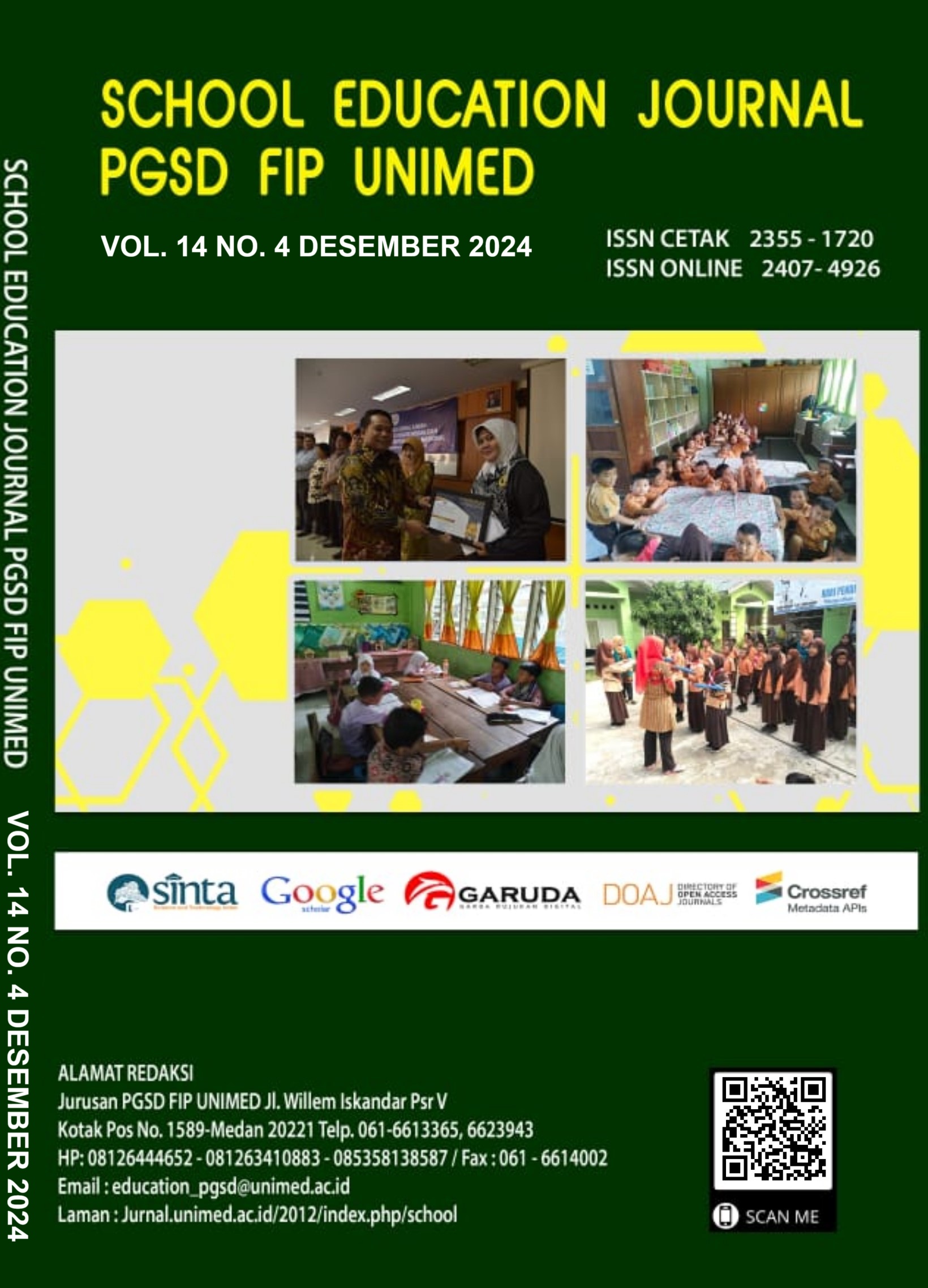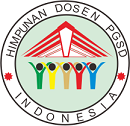PENGARUH STRATEGI REACT (RELATING, EXPERIENCING, APPLYING, COOPERATING, TRANSFERRING) TERHADAP KEMAMPUAN NUMERASI SISWA PADA PEMBELAJARAN MATEMATIKA
DOI:
https://doi.org/10.24114/sejpgsd.v14i4.66219Abstract
The low numeracy skills of students serve as the background of this study. Therefore, this study aims to determine the difference between the effect of REACT (Relating, Experiencing, Applying, Cooperating, Transferring) learning strategy with conventional learning in improving students' numeracy skills in mathematics learning. This research is a quasi-experiment with nonequivalent control group design. This research instrument utilized a numeracy test. Data analysis comprised namely normality test, homogeneity test, mean difference test, and normalized Gain (N-Gain) test. The results showed that REACT learning strategy and conventional learning can improve students' numeracy skills. The REACT learning strategy demonstrated an improvement in students' numeracy skills with an N-Gain score of 0.58 and an N-Gain percentage of 57.93% in the medium and moderately effective category. Conversely, the conventional learning resulted in an N-Gain score of 0.35 and an N-Gain percentage of 35.49% with moderate and ineffective categories. Consequently, REACT learning strategy is better than conventional learning in improving students' numeracy skills.Published
Issue
Section
License
Copyright (c) 2024 SCHOOL EDUCATION JOURNAL PGSD FIP UNIMED

This work is licensed under a Creative Commons Attribution-ShareAlike 4.0 International License.
Authors whose manuscripts are approved are approved as follows:
- The publication rights for all journal manuscript materials published/published on the SEJ (School Education Journal) E-Journal site are held by the editorial board with the author's knowledge (moral rights remain with the manuscript authors).
- The formal legal requirements for accessing this electronic digital journal article are subject to the terms of the Creative Commons Attribution-ShareAlike (CC BY-SA 4.0) license, which means that E-Journal SEJ (School Education Journal) has the right to store, transfer media/format, manage in the form of a database, maintain, and publish articles without asking permission from the author as long as the author's name remains as the copyright owner.
- Manuscripts published/published electronically are open access for educational, research, and library purposes.













